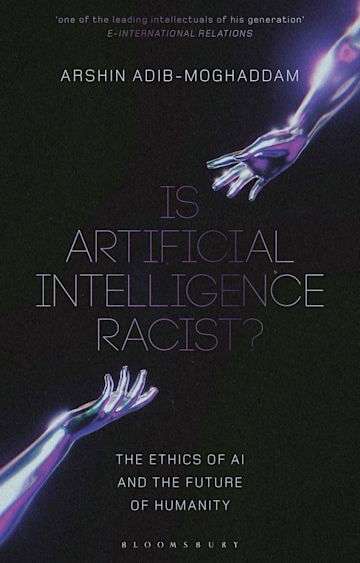In recent years, the rapid advancement of Artificial Intelligence (AI) has sparked both excitement and apprehension about its potential impact on our daily lives and the future of humanity. As AI becomes increasingly integrated into various aspects of society, from banking and shopping to job applications, concerns about its inherent biases and discriminatory tendencies have come to the forefront. Perhaps one of the most alarming issues surrounding AI is the presence of racism.
AI algorithms rely on vast amounts of data to make decisions, and this data is often sourced from historical records and human interactions. The legacy of racism, unfortunately, is deeply ingrained in our historical data, leading to biases being unintentionally encoded into AI systems. These biases can manifest in various forms, including racial profiling, prejudiced hiring practices, and unfair treatment in areas like banking and lending.
In Is Artificial Intelligence Racist?: The Ethics of AI and the Future of Humanity Arshin Adib-Moghaddam explores the troubling presence of racism within the very fabric of the algorithms that now govern our daily lives. This thought-provoking book takes readers on a journey through the history of enlightenment racism and its connection to the discriminatory practices embedded in modern-day Artificial Intelligence (AI) systems.
Providing an examination of the data that feeds into AI technology and how it will inevitably shape the future of humanity, Adib-Moghaddam unveils the profound implications of such data-driven technology on international security and human rights, urging readers to confront the potential consequences of unbridled AI development.
The book delves into the narratives surrounding the birth and progression of AI systems, placing particular emphasis on the influence of tech giants like Mark Zuckerberg, Elon Musk, and Bill Gates. Through this exploration, the author sheds light on how technology inadvertently assists and enables various forms of extremism, perpetuates social hierarchies, and reinforces discriminatory boundaries within our societies.
The book connects historical threads of racism to the algorithms that underpin our current technological landscape. By tracing the roots of these biases back to enlightenment-era prejudices, Adib-Moghaddam challenges readers to confront the uncomfortable reality of how deep-seated discriminatory beliefs have permeated the very tools we rely on daily.
Adib-Moghaddam draws on a wealth of examples of the insidiousness of racism and discrimination within AI systems. While the book successfully sheds light on the negative aspects of AI, it also offers a glimmer of hope by encouraging readers to actively question and challenge the status quo. By being aware of the potential pitfalls and biases in AI, we can collectively work towards a future that prioritizes inclusivity, equality, and justice.
Is Artificial Intelligence Racist?: The Ethics of AI and the Future of Humanity is a timely and thought-provoking exploration of the racism and extremism lurking within AI systems. Arshin Adib-Moghaddam’s scholarly analysis, combined with his engaging writing style, makes this book a must-read for anyone interested in understanding the implications of AI on our society, international security, and human rights. As we stand at the precipice of an AI-driven future, this book serves as a crucial wake-up call, urging us to address these concerns and shape technology in a way that benefits all of humanity.
Arshin Adib-Moghaddam, Is Artificial Intelligence Racist?: The Ethics of AI and the Future of Humanity (Bloomsbury Academic, 2023) ISBN: 9781350374423, 160 pages
Written by Dilara Özer
Recommended





